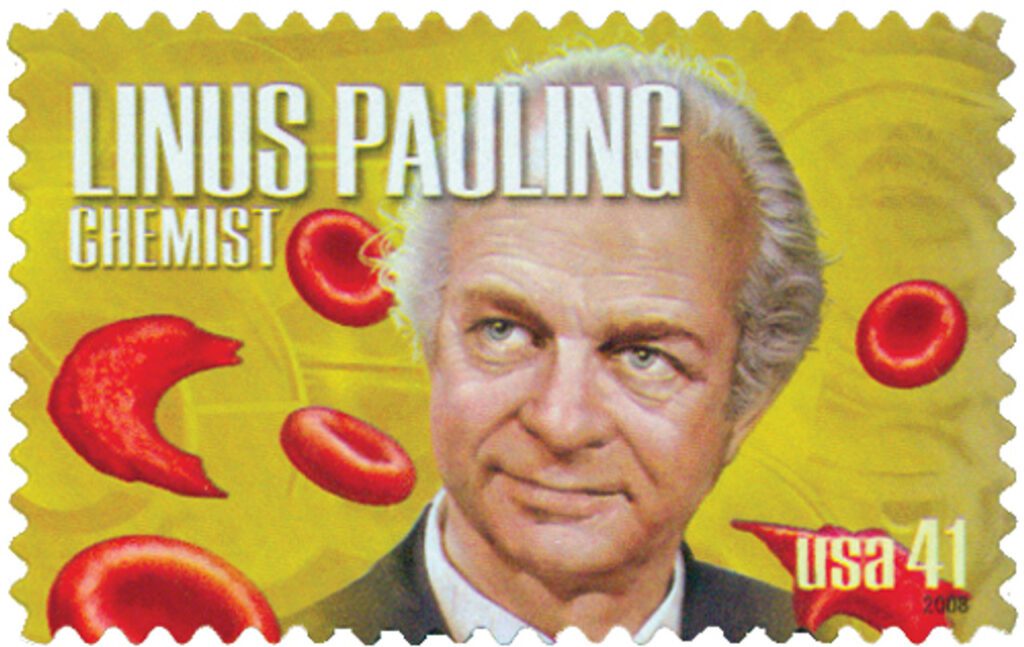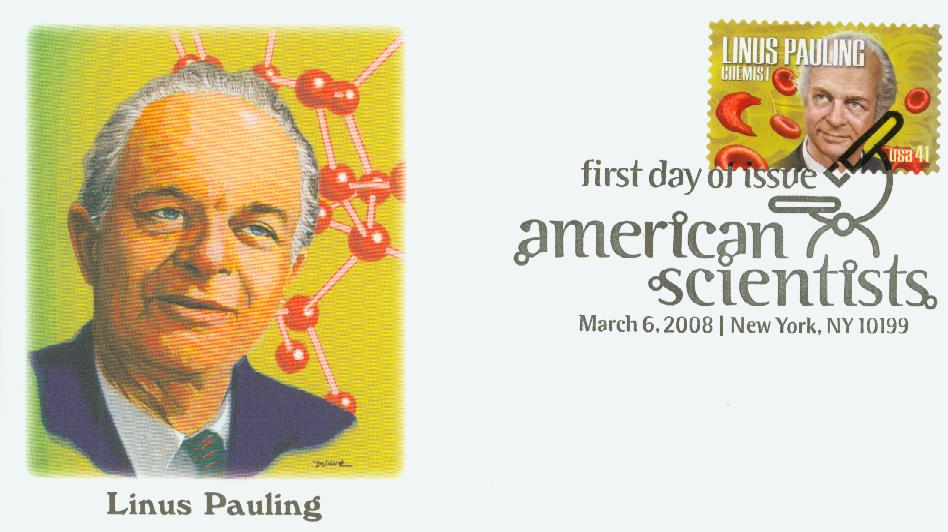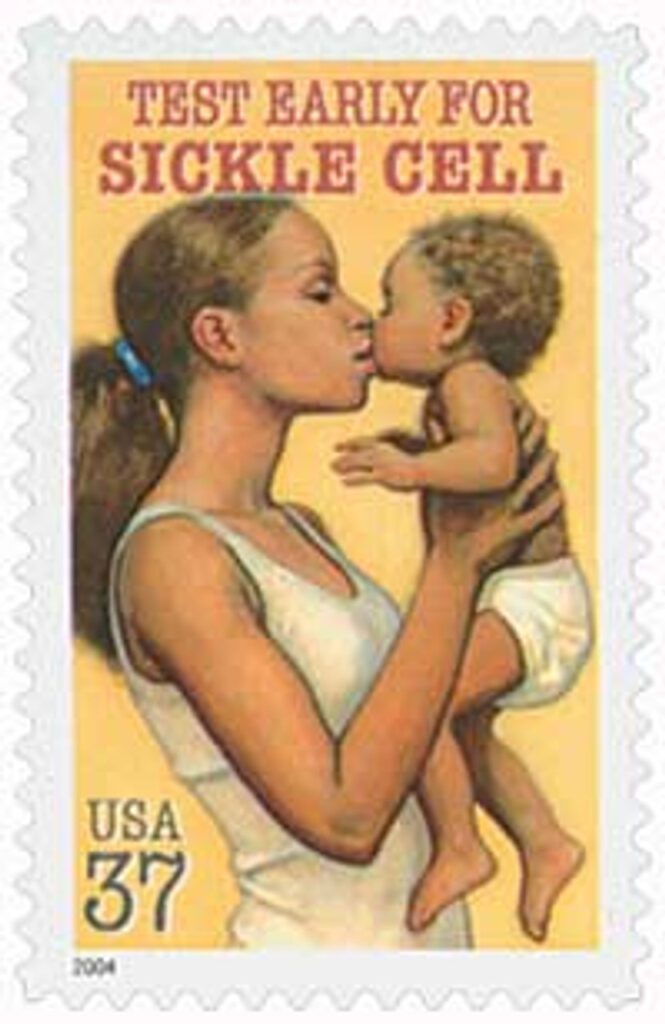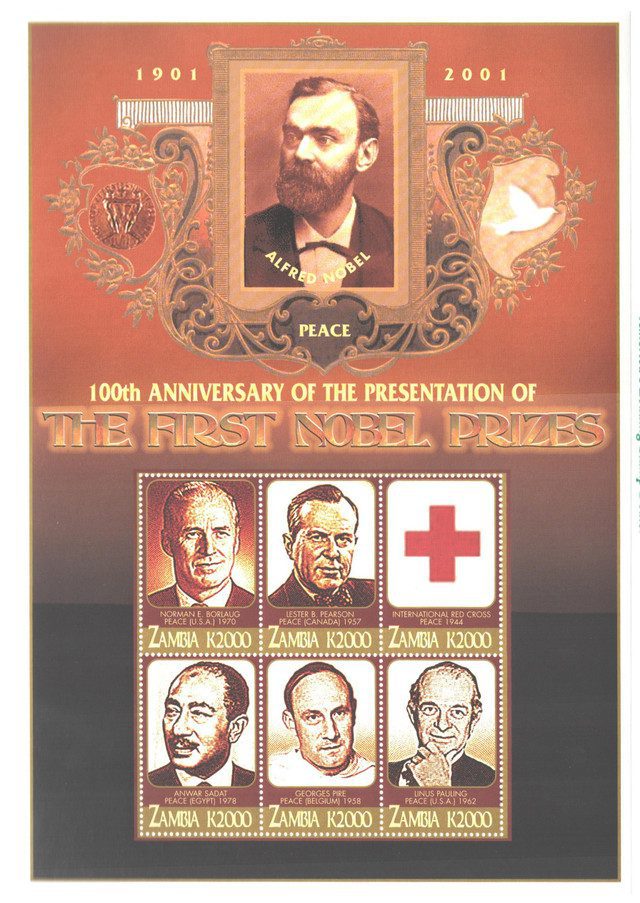American scientist Linus Pauling was born on February 28, 1901, in Portland, Oregon.
When he was a child, Pauling first became interested in chemistry after witnessing his friend conduct experiments with a small lab kit. He later recalled, “I was simply entranced by chemical phenomena, by the reactions in which substances, often with strikingly different properties, appear; and I hoped to learn more and more about this aspect of the world.”
Pauling began conducting his own experiments in high school but dropped out because of a disagreement with the principal. He then worked at a grocery store, in several manufacturing plants, and as a photographer until he made enough money to attend Oregon State University. Pauling was an active student and taught quantitative analysis during his second year there. Also, while still in school, Pauling became interested in the way physical and chemical properties of substances relate to their atoms, making him one of the founders of the field of quantum chemistry.
After graduating from Oregon State, Pauling went on to attend the California Institute of Technology before earning a PhD in physical chemistry and mathematical physics. From there, he received the Guggenheim Fellowship and spent two years in Europe with leading scientists studying quantum mechanics. When he returned to America, Pauling began working as a teacher at Caltech. In the coming years, he published 50 papers and created Pauling’s rules on the crystal structures of ionic compounds. Also during this period, Pauling published The Nature of the Chemical Bond, which is often considered the foundation of modern chemistry and molecular biology.
Pauling took a break from his theoretical work in the 1940s to contribute to the war effort. To this end, he developed a synthetic blood plasma that could be used in battlefield emergencies as well as an oxygen detector for submarines and airplanes. In recognition of his wartime accomplishments, Harry Truman gave Pauling the Presidential Medal for Merit.

Though he had aided the war effort, Pauling was worried about the future. So he joined Albert Einstein’s Emergency Committee of Atomic Scientists and spoke out about the dangers of nuclear war. Professionally, Pauling also made significant discoveries during this period. In 1949, he published research proving an abnormal protein in the cell caused sickle-cell anemia. He also discovered the alpha helix, which he believed was the basic structure of DNA. Though his model was later proved incorrect, he received the 1954 Nobel Prize for Chemistry for research on chemical bonds.
Pauling and a group of scientists then launched a campaign condemning the testing and proliferation of nuclear arms. They sued the US Department of Defense to prevent testing and delivered a petition to the United Nations calling for an end to nuclear testing. He also published a book called No More War!, which shared his beliefs on the subject. For his efforts, he received the Nobel Peace Prize in 1962. He’s the only person to win two unshared Nobel Prizes, and one of just two people to have the prizes in different fields.
Pauling then turned his chemistry research toward how it related to the human body. In 1970, he published Vitamin C, the Common Cold and the FLU, and later, Cancer and Vitamin C, and How to Live Longer and Feel Better. Three years later, he founded the Institute of Orthomolecular Medicine, a non-profit research organization, later renamed the Linus Pauling Institute. However, many in the medical community balked at his beliefs and his funding dried up. Pauling began working less but was diagnosed with prostate cancer in 1991. He later died on August 19, 1994.
Click here to browse Pauling’s many achievements.
| FREE printable This Day in History album pages Download a PDF of today’s article. Get a binder or other supplies to create your This Day in History album. |
Discover what else happened on This Day in History.







Thank you Mystic for today’s lesson. Quite an accomplished life.
What a lad!
I continue to marvel at individuals such as this….the numerous contributions they have left us mind boggling.
Good to see the achievements of a chemist being honored here. Normally scientists of other domains hog the limelight…
Another fantastic history lesson. Thank you Mystic!
Yeh, Linus.